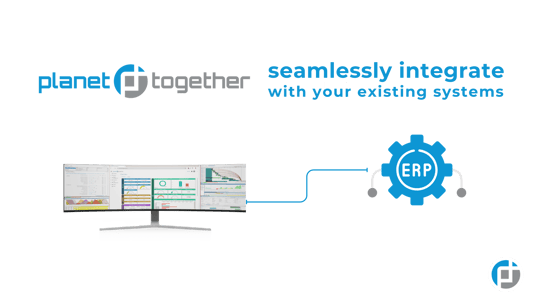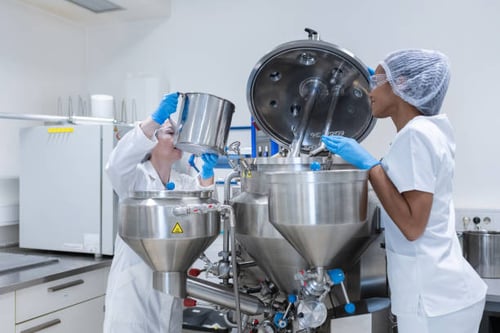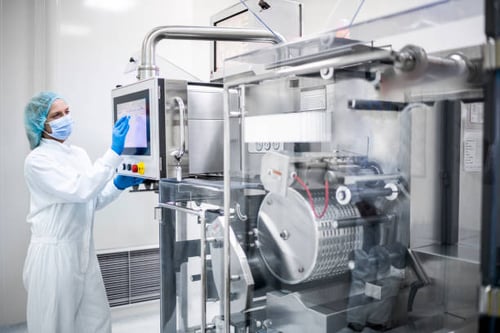Pharmaceutical manufacturing is undergoing a profound transformation, driven by the need for enhanced product quality, regulatory compliance, and process efficiency. At the heart of this evolution lies Process Analytical Technology (PAT) — a framework designed to monitor and control manufacturing processes through timely measurements of critical quality and performance attributes.
For plant managers, adopting PAT is more than a technical upgrade — it’s a strategic imperative. When integrated with advanced planning and scheduling (APS) systems like PlanetTogether, alongside enterprise platforms such as SAP, Oracle, Microsoft, Kinaxis, or Aveva, PAT becomes a powerful enabler of real-time decision-making, agile production control, and consistent regulatory adherence.
Understanding PAT: A Plant Manager’s Perspective
Process Analytical Technology is an FDA-driven initiative that empowers pharmaceutical plants to “build quality into products rather than test for quality after production.” This approach revolves around:
Real-time monitoring of critical process parameters (CPPs) and critical quality attributes (CQAs)
Multivariate data analysis to understand complex process relationships
Predictive modeling to forecast outcomes and avoid deviations
Closed-loop control to adjust processes automatically and maintain compliance
PAT bridges the gap between traditional batch processes and the demands of continuous manufacturing by enabling data-driven, adaptive production environments.
The Challenge: Complexity in Modern Pharmaceutical Production
Today's pharmaceutical facilities face numerous challenges:
Increased product complexity, including biologics and personalized medicine
Tighter regulatory scrutiny, especially around data integrity and validation
High-cost consequences of deviations, recalls, or compliance violations
Disparate data systems that fragment information across operations
Without cohesive integration between shop floor sensors, quality systems, planning tools, and enterprise software, PAT data remains underutilized and siloed.

The Solution: PAT + PlanetTogether + ERP/MES Integration
Enter the synergy between Process Analytical Technology, PlanetTogether APS, and enterprise systems like SAP, Oracle, Microsoft Dynamics, Kinaxis, or Aveva. This combination forms a closed-loop manufacturing ecosystem where:
PAT systems feed real-time process and quality data
PlanetTogether uses this data to dynamically adjust production schedules
ERP/MES platforms provide visibility into resources, inventory, compliance, and demand
This integration transforms pharmaceutical plants into smart, responsive, and compliant operations.

Real-World Applications of PAT in Pharma Plants
Inline Monitoring of Drug Concentrations
Using spectroscopy, pharmaceutical plants can now analyze API concentrations in real time. When integrated with PlanetTogether and ERP systems, this data can trigger adaptive scheduling — for example, slowing a batch down if target concentrations are not met, or accelerating downstream processes when early release conditions are achieved.
Granulation and Blending Control
Variations in blend uniformity can impact batch quality. PAT tools analyze blend homogeneity on the fly. PlanetTogether then leverages this information to adjust workflows, preventing bottlenecks or unnecessary rework, while ERP systems ensure documentation and audit trails are automatically updated.
Drying and Coating Optimization
In tablet manufacturing, PAT systems monitor moisture content and coating thickness in real time. Integration with PlanetTogether and platforms like SAP allows for energy optimization, reduced cycle times, and better synchronization with packaging lines — improving throughput and reducing waste.

Benefits of PAT Integration with APS and ERP
Predictive Scheduling Based on Real-Time Quality Data
PlanetTogether uses PAT feedback to adjust schedules before deviations become problems. For instance, if a granulation step shows early signs of deviation, the system can:
Reschedule other batches
Alert QA teams proactively
Delay dependent processes downstream
Streamlined Regulatory Compliance and Validation
Integration with ERP platforms like SAP or Oracle ensures:
Automatic logging of real-time PAT data
Traceable process adjustments and decision rationale
Compliance with 21 CFR Part 11 and other global regulations
Improved Batch Release Times
Through Real-Time Release Testing (RTRT) enabled by PAT, production schedules in PlanetTogether can be synchronized with QA release timelines. This dramatically shortens the lead time between production and distribution.
Resource and Inventory Optimization
By feeding PAT data into ERP platforms like Kinaxis or Microsoft Dynamics, planners can better forecast material needs, prevent overproduction, and minimize scrap — aligning perfectly with lean manufacturing goals.
Operational Agility and Resilience
With integrated systems, plant managers gain a single pane of glass view — seeing how quality trends impact schedules, inventory, equipment capacity, and workforce deployment. This allows for faster decision-making during unexpected disruptions or demand spikes.
For pharmaceutical plant managers, Process Analytical Technology isn’t just a compliance requirement — it’s a strategic asset. When integrated with advanced planning tools like PlanetTogether and ERP/MES platforms such as SAP, Oracle, Microsoft, Kinaxis, or Aveva, PAT becomes a transformative force that delivers:
Real-time insight
Agile production
Higher product quality
Faster time to market
Stronger regulatory posture
The path forward lies in connecting your plant’s data, planning, and people into a single, intelligent system. With the right strategy and tools in place, PAT integration positions your pharmaceutical facility not only to compete — but to lead in a rapidly evolving industry.
Ready to integrate PAT with your production scheduling and enterprise systems? Contact PlanetTogether today to learn how our APS platform seamlessly connects with SAP, Oracle, Microsoft, Kinaxis, and Aveva — delivering actionable insights that elevate your pharmaceutical operations.